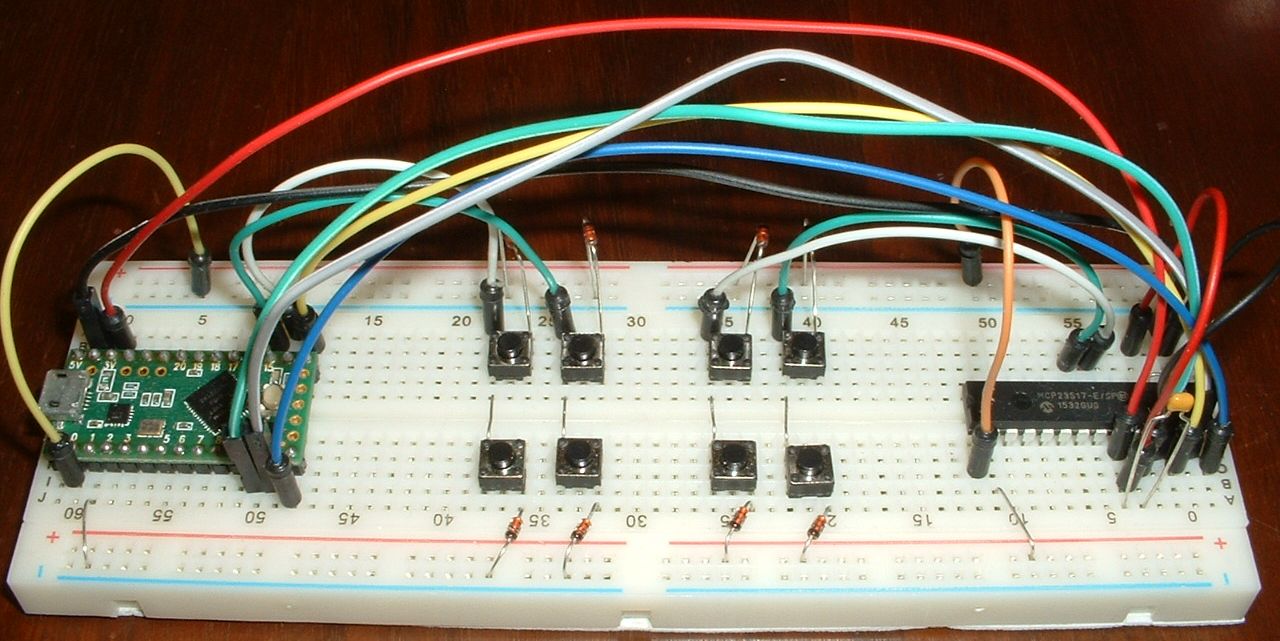3.3 KiB
keybrd Tutorial 4c - split keyboard with I/O Expander
When you finish this tutorial you will be able to be able to modify a 2-matrix keybrd sketch to suite your own split keyboard design.
Overview of split keyboard with I/O Expander
The breadboard in the following picture models a split keyboard. The green rectangle on the left is a Teensy LC micro controller. The black rectangle on the right is a MCP23S17 I/O expander.
The two ICs communicates via SPI protocol, where Teensy LC is the master and MCP23S17 is slave. The two ICs are connected via six jumper wires.
The breadboard's four bus strips are used as matrix rows. Two rows (blue buses) are connected to the microcontroller. Two rows (red buses) are connected to the I/O expander.
Building a split keyboard with I/O Expander
Starting with the basic breadboard keyboard described in tutorial_1_breadboard_keyboard.md, add parts as described above. Refer to the MCP23S17 datasheet to locate its pins.
In the picture, MCP23S17 pin 1 is on the left end, towards the controller.
The MCP23S17 I/O expander has two ports. Each port has eight pins. Port B is connected to the matrix's rows (red bus). Port A is connected to the matrix's columns (jumpers).
MCP23S17's device address is configured by hardware pins. All three address pins are grounded.
The MCP23S17's /RESET pin is connected to VDD.
This table lists the six wires connecting Teensy LC to MCP23S17:
| CONNECTION | Teensy LC | MCP23S17 |
|---|---|---|
| ground | GND | VSS |
| power | 3.3v | VDD |
| Serial Clock | SCK0 | SCK |
| Master Out, Slave In | MOSI0 | SI |
| Master In, Slave Out | MISO0 | SO |
| Chip Select | CS0 | /CS |
A decoupling capacitor between the power and ground wires suppresses noise.
Sketch for split keyboard with I/O Expander
The keybrd_4c_split_with_IOE.ino sketch explains how the I/O Expander works on a keyboard.

keybrd tutorial by Wolfram Volpi is licensed under a Creative Commons Attribution 4.0 International License.
Permissions beyond the scope of this license may be available at https://github.com/wolfv6/keybrd/issues/new.
